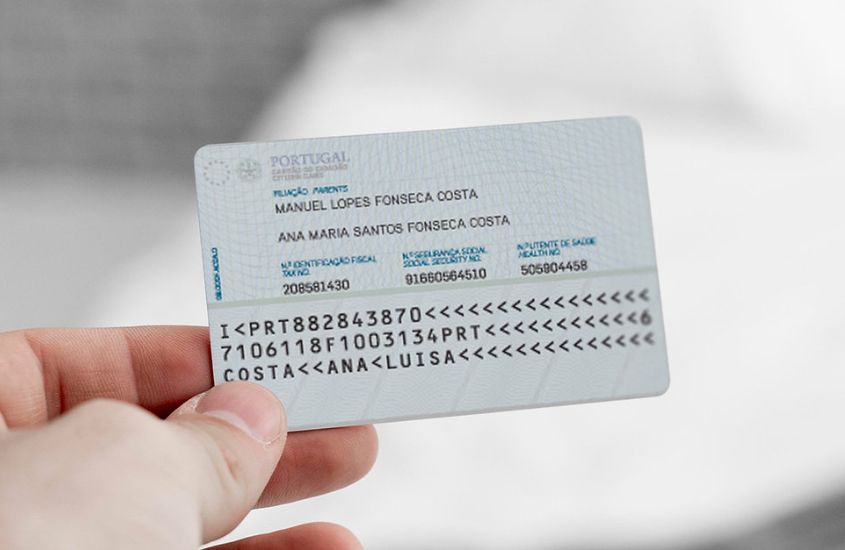A Portuguese Fiscal Number, also known as Número de Identificação Fiscal (NIF), is a unique identifier assigned to individuals and legal entities for tax purposes in Portugal. Fiscal number is essential for various financial and administrative activities. Including opening a bank account, signing a lease, receiving income, and filing tax returns. It is issued by the Portuguese Tax Authority and is required for both residents. And non-residents who engage in economic activities in Portugal.
Obtaining a NIF is a straightforward process that can be done at a local tax office. Or through a representative if the applicant is not in Portugal. Non-residents typically need to appoint a fiscal representative, who will act as a liaison with the tax authorities. The NIF is crucial for ensuring compliance with Portuguese tax laws. And is used to track all tax-related transactions and obligations. Without a NIF, individuals and businesses cannot legally conduct financial transactions or meet regulatory requirements in Portugal.
Why You Need a Portuguese Fiscal Number
Obtaining a Portuguese Fiscal Number (NIF) is essential for anyone planning to live, work, or conduct business in Portugal. This unique identification number is required for a wide range of activities, from opening a bank account. And signing a rental agreement to purchasing property and securing employment. Without a NIF, many of these essential transactions cannot be completed, effectively hindering your ability to integrate into Portuguese society. Additionally, the NIF is necessary for accessing public services such as healthcare and education. Ensuring that you can fully participate in the social and economic life of the country.
For foreign investors and entrepreneurs, the NIF is a critical component of doing business in Portugal. It is needed for setting up a company, registering for social security, and fulfilling tax obligations. Having a NIF also simplifies interactions with Portuguese institutions and authorities. As it serves as your official identifier for tax and legal purposes. Without it, you may face significant delays and complications in your financial and legal dealings. Thus, obtaining a Portuguese Fiscal Number is a fundamental step for anyone looking to establish a presence in Portugal, whether temporarily or permanently.
How to Obtain a Portuguese Fiscal Number
Obtaining a Portuguese Fiscal Number (NIF) is a straightforward process that requires some essential documentation. For residents of Portugal, the process involves visiting a local tax office (Serviço de Finanças) with your identification documents, such as a Citizen Card (Cartão de Cidadão) or a valid passport, and proof of address. At the tax office, you will fill out a request form, and the NIF is typically issue on the spot. For non-residents and expats, the procedure is similar, but you will also need to provide a fiscal representative who is a resident of Portugal and agrees to be responsible for your tax matters. This representative can be a lawyer, a friend, or a family member.
Non-residents can also apply for a NIF through a Portuguese consulate in their home country or use online services offered by various agencies. When applying through a consulate, you must present your valid passport and proof of address. The consulate will forward your application to the Portuguese tax authorities, and the NIF will issue and sent to you. Online services can expedite the process by handling the paperwork and representation for a fee. Regardless of the method, obtaining a NIF is a crucial step for anyone planning to live, work, or invest in Portugal, as it facilitates various legal and financial transactions within the country.
Common Challenges and How to Overcome Them
Obtaining a Portuguese Fiscal Number (NIF) can come with several challenges, particularly for non-residents and expats unfamiliar with the Portuguese system. One common issue is the requirement for a fiscal representative for non-residents. A fiscal representative, who must be a resident of Portugal, acts on behalf of the non-resident in tax matters. Finding a trustworthy and reliable representative can be daunting, especially for those who are new to the country and do not have an established network. To overcome this challenge, it is advisable to seek assistance from reputable legal or accounting firms that offer fiscal representation services. These professionals can ensure compliance with all requirements and facilitate the application process.
Another challenge often faced is the bureaucratic nature of the application process, which may involve navigating language barriers and understanding the specific documentation required. Applicants may encounter difficulties in gathering all necessary documents. Such as proof of address, or may be unsure of where and how to submit their application. To mitigate these issues, thorough preparation is key. Applicants should gather all require documents in advance and consider having important documents translate into Portuguese if necessary. Additionally, seeking help from local services, online guides, or expat communities can provide valuable insights and practical advice. Ensuring a smoother and more efficient application experience.
Using Your Portuguese Fiscal Number
Once you have obtained your Portuguese Fiscal Number (NIF), it becomes a versatile tool for navigating various aspects of life in Portugal. Primarily used for tax purposes, your NIF allows you to engage in financial transactions such as opening bank accounts, purchasing property. Or securing employment contracts. It is also essential for accessing public services like healthcare and education. Where presenting your NIF may require for enrollment or eligibility verification. Additionally, businesses and freelancers rely on the NIF to issue invoices, pay taxes, and comply with legal obligations. Making it indispensable for anyone conducting commercial activities in Portugal.
To effectively use your Portuguese Fiscal Number, ensure it is correctly registered with relevant authorities and keep it readily accessible for transactions. Whether you’re renting an apartment, registering for utilities, or engaging in any financial transaction, having your NIF readily available streamlines processes and ensures compliance with Portuguese regulations. Understanding its role beyond taxation helps residents, non-residents, and expats integrate seamlessly into Portuguese society. And business environments, fostering smoother interactions with local institutions and services.
Legal Implications of Not Having a NIF
Not having a Portuguese Fiscal Number (NIF) when required can have significant legal implications in Portugal. The NIF is not only essential for tax purposes but also serves as a unique identifier for individuals engaging in various financial and legal transactions within the country. Failure to obtain a NIF can lead to difficulties in opening bank accounts. Signing rental agreements, purchasing property, and securing employment. Moreover, conducting business transactions, accessing healthcare, and enrolling in educational programs may hinder without a valid NIF.
From a legal standpoint, not having a NIF can result in non-compliance with Portuguese tax regulations. This may lead to penalties, fines, and legal repercussions, especially if one is found to have engaged in activities that require a NIF without proper registration. It is crucial for residents, non-residents, and expats alike to understand the legal obligations associated with obtaining and maintaining a NIF to avoid these consequences and ensure smooth operations in Portugal.
How to Check the Validity of a Portuguese Fiscal Number
To verify the validity of a Portuguese Fiscal Number (NIF), individuals can use several methods provided by the Portuguese Tax Authority (Autoridade Tributária e Aduaneira, or AT). One straightforward way is to visit the AT’s official website and use their online verification tool. This tool allows users to enter the NIF in question and immediately receive confirmation of its validity. Another method is to contact the AT directly through their customer service channels, where trained staff can verify the NIF over the phone or via email correspondence. It’s essential to ensure the accuracy of the NIF.
Additionally, businesses and individuals working with Portuguese entities may also verify the validity of a NIF through commercial databases or legal advisors who specialize in Portuguese tax and legal matters. Verifying the NIF ensures compliance with local regulations and helps maintain the integrity of financial and administrative processes involving Portuguese institutions.
Renewing or Replacing Your Portuguese Fiscal Number
Renewing or replacing your Portuguese Fiscal Number (NIF) may become necessary under certain circumstances, such as expiration or loss of your original documentation. The process for renewal or replacement is relatively straightforward but requires attention to specific details. Typically, if your NIF card expires, you will need to visit your local tax office or utilize online services provided. By the Portuguese Tax Authority to initiate the renewal process. You may be required to provide updated identification documents and proof of address to verify your continued residency or status in Portugal. It’s crucial to keep your NIF valid, as it is essential for various legal and financial transactions within the country. Including tax filings, property transactions, and accessing public services.
In cases where your NIF card is lost or stolen, prompt action is necessary to prevent misuse. You should report the loss to the Portuguese Tax Authority and apply for a replacement as soon as possible. This process typically involves filling out a form, providing identification documents, and possibly paying a fee for the replacement card. Once issued, the replacement NIF card will have the same number as the original, ensuring continuity in your financial and legal records. Keeping copies of your NIF and related documentation in a secure place can help expedite the replacement process and minimize disruption to your activities in Portugal.
Challenges and Solutions in Obtaining a NIF
Obtaining a Portuguese Fiscal Number (NIF) can present several challenges, particularly for non-residents and expats unfamiliar with the Portuguese bureaucracy. One common hurdle is the language barrier, as most of the application process and related documentation are in Portuguese. This can make it difficult for non-Portuguese speakers to understand the requirements and complete the forms accurately.
Additionally, non-residents are require to appoint a fiscal representative. A resident of Portugal who can act on their behalf in tax matters. Finding a reliable and trustworthy representative can be another obstacle, especially for those new to the country.

Conclusion
In conclusion, the Portuguese Fiscal Number (NIF) is an indispensable tool for anyone living, working, or conducting business in Portugal. It serves as a unique identifier for tax purposes and is require for a wide range of activities, from opening a bank account. And purchasing property to accessing public services and securing employment. Obtaining a NIF is a straightforward process, but it is crucial to understand the requirements and ensure you have the necessary documentation. To avoid any delays or complications.
Whether you are a resident, non-resident, or expat, having a NIF simplifies your interactions with Portuguese institutions. And ensures compliance with the country’s tax regulations. By securing your NIF early, you can smoothly navigate the financial and legal landscape of Portugal. Making your transition to life in the country much more manageable. Remember, the NIF is not just a bureaucratic formality. It is a key to unlocking numerous opportunities and services in Portugal.










